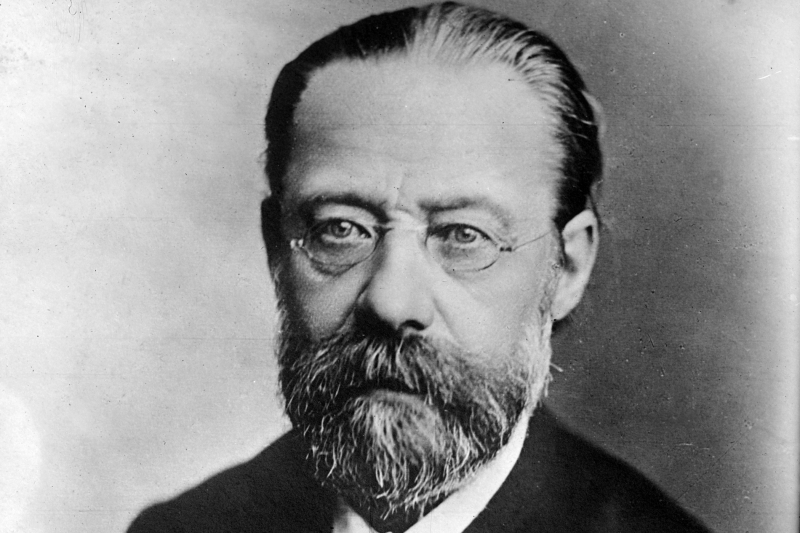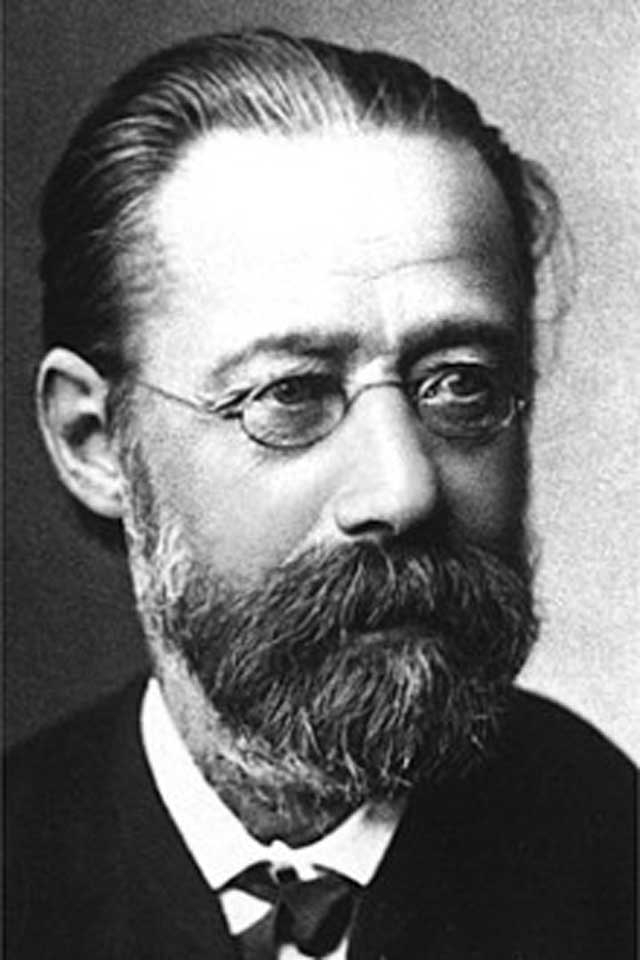Bedřich Smetana
Bedřich Smetana was a Czech composer who pioneered the development of a musical style that became strongly associated with his people's dreams for a cultural and political "revival." In his homeland, he is hailed as the "Father of Czech Music." Internationally, he is most known for his 1866 opera The Bartered Bride and the symphonic cycle Má vlast ("My Fatherland"), which depicts the composer's homeland Bohemia's history, folklore, and geography. It includes the well-known symphonic poem "Vltava," also known as "Die Moldau" in German (in English, "The Moldau").
Smetana was a natural composer who delivered his first public concert at the age of six. After finishing his formal education, he went to Prague to study music with Josef Proksch. His first nationalistic song was composed during the 1848 Prague revolt, in which he took part briefly. After failing to make a name for himself in Prague, he moved to Sweden, where he worked as a teacher and choirmaster in Gothenburg and began to compose large-scale orchestral pieces.
A more open political climate in Bohemia led Smetana to return to Prague permanently in the early 1860s. He immersed himself in the city's musical culture, particularly as a supporter of the emerging Czech opera genre. His first two operas, The Brandenburgers in Bohemia and The Bartered Bride, were presented in Prague's new Provisional Theatre in 1866, with the latter becoming a huge success. Smetana became the theatre's principal conductor the following year, but his tenure was marred by controversy. Some in the city's musical elite saw his affinity for the revolutionary concepts of Franz Liszt and Richard Wagner as detrimental to the development of a distinctively Czech opera style. This hostility hampered his creative output and may have worsened his health decline, which led to his resignation from the theatre in 1874.
Smetana had become entirely deaf by the end of 1874, but now that he was free of his theatre duties and the associated disputes, he entered a phase of sustained composition that lasted virtually the rest of his life. His contributions to Czech music were more recognized and honored, but a mental breakdown early in 1884 resulted in his confinement in a hospital and death. Smetana's position as the founding father of Czech music has lasted in his homeland, where supporters have elevated him above his contemporaries and successors. However, few of Smetana's compositions are in the international repertory, and most foreign reviewers consider Antonn Dvoák to be a more significant Czech composer.













